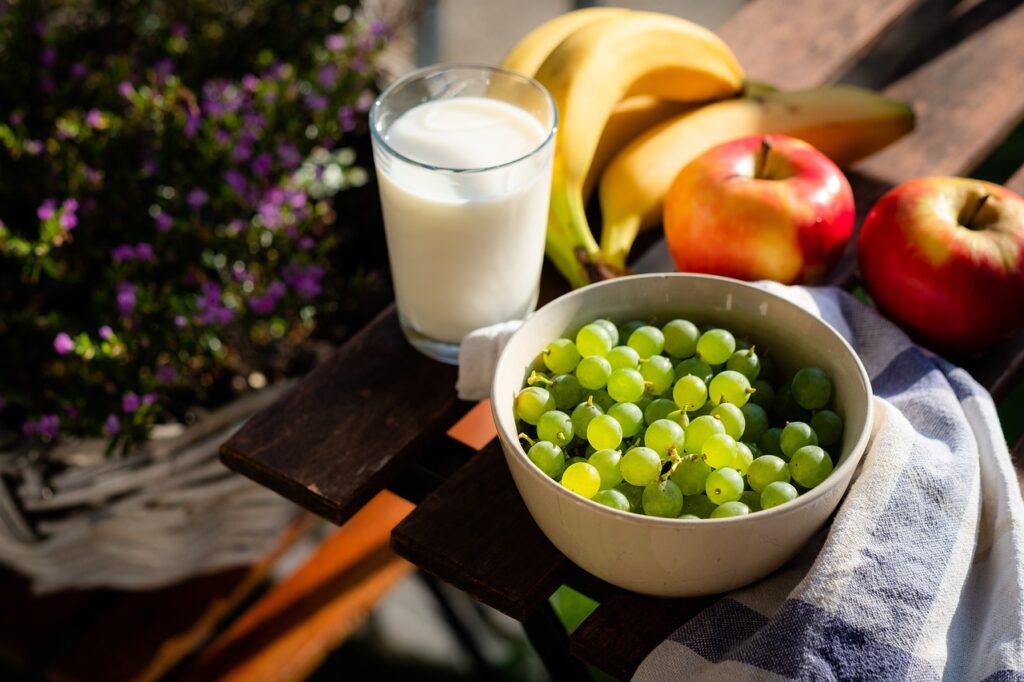Expert debunks seven totally false diet fads.
When it comes to nutrition, the best rule of thumb is everything in moderation – but much nutrition advice takes eating (or not eating) to the extreme. From plants vs. animals to cutting out entire food groups, nutrition myths try their best to make people believe that no matter what they eat, they’re doing it wrong.
Richard Smith-Bernal, the founder of The Juice Smith, is here to debunk the seven greatest nutrition myths and show you how to really eat healthily.
Fresh Produce Is Healthier Than Frozen Or Canned Produce
Although many people believe that fresh fruits and vegetables offer the most nutrients, there is no evidence to support that. Produce that has been frozen or canned is packaged directly after being harvested, sometimes even making the nutritional value of canned or frozen food higher than fresh fruits or vegetables, which might have been flown across the world before arriving in your supermarket.
‘Vegetables and fruits keep most of their nutrients right after being picked, but nutrients start to decrease the longer they are off the stem,’ says Richard. ‘If frozen or canned immediately, they retain their nutritional value.’
Plant Milk Is Healthier Than Dairy Milk
Plant-based milks have blown up in popularity in recent years as an alternative for people who follow vegan diets or have lactose intolerance. Many plant milks are advertised as healthier than normal dairy milk, but the science says otherwise.
Though plant milks made of soy, almonds, or oats serve as good substitutes for dairy milk in terms of texture and use, they are often inundated with added ingredients like sugar to make them taste better. Additionally, cow’s milk has about eight grams of protein per cup, while almond only has about one to two grams, and oat has about two or three.
Plant Protein Is Insufficient
For many vegans and vegetarians, the most common comments they get from others are about how they are deprived of essential nutrients like protein because of their plant-based diets. What most people don’t know is that many plants offer a significant amount of natural protein.
Tempeh, tofu, chickpeas, and lentils rank as the most protein-rich plant-based foods. Soy-based products like tofu and tempeh can provide up to fifteen grams of protein per half-cup serving.
Soy Is Bad For Women
With rising cases of breast cancer each year, it has become a common statement that soy products cause breast cancer. This fear comes from the fact that soy is a food that has high estrogen levels, and it has been proven in some animal studies that it can cause breast cancer cells to multiply. However, this has never been demonstrated in humans.
In fact, eating a lot of soy is actually very good for your health. Richard adds, ‘Soy has high levels of protein and fiber, so eating one or two servings of soy products daily, like tofu or edamame, can help your digestive and muscular systems.’
https://pixabay.com/photos/
All Fat Is Bad For You
This may be the longest-standing of all of the nutrition myths on this list. For decades, fat in food has been labeled as the worst thing you can eat. After saturated fats were linked with heart disease in the late 1940s, a fear of fats swept across the world. Many people went on ‘no fat’ diets, cutting out not only bacon and other fatty meats but also good fats like olive oil.
After some time, people realized that there wasn’t much of a difference in their weight after cutting out all fats, and some even gained weight because they had swapped fats for highly processed carbohydrates. Richard states, ‘Not all fats are equal, so if you want one to cut out, reduce your intake of saturated fats. Instead, stick to the monounsaturated and polyunsaturated fats in avocados, cooking oils, nuts, and seeds.’
Cutting Out Carbs Is The Key To Healthy Living
Just like with fats, there was and still is a trend of going on low-carb diets to lose weight. ‘People think that if they cut out carbs, they will lose a lot of weight, but that is not true. We need carbohydrates like whole grains, fruits, and vegetables to provide us with fiber, protein, vitamin B and much more,’ urges Richard. ‘The only carbs you should avoid are overprocessed products like sugary cereals and snack cakes.’
Eating Gluten-Free Is Healthy
Although eating less gluten might help people with issues like inflammation, being gluten-free does not necessarily mean that a person is eating healthier than others. Many gluten-free alternatives are often full of filler ingredients that are very processed.
‘To live a healthier gluten-free life, try baking your own wheat-free desserts instead of buying all the processed products you find in stores,’ advises Richard. ‘Eating gluten-free can be a healthy way to live if you cook for yourself and limit your intake of processed foods.’

